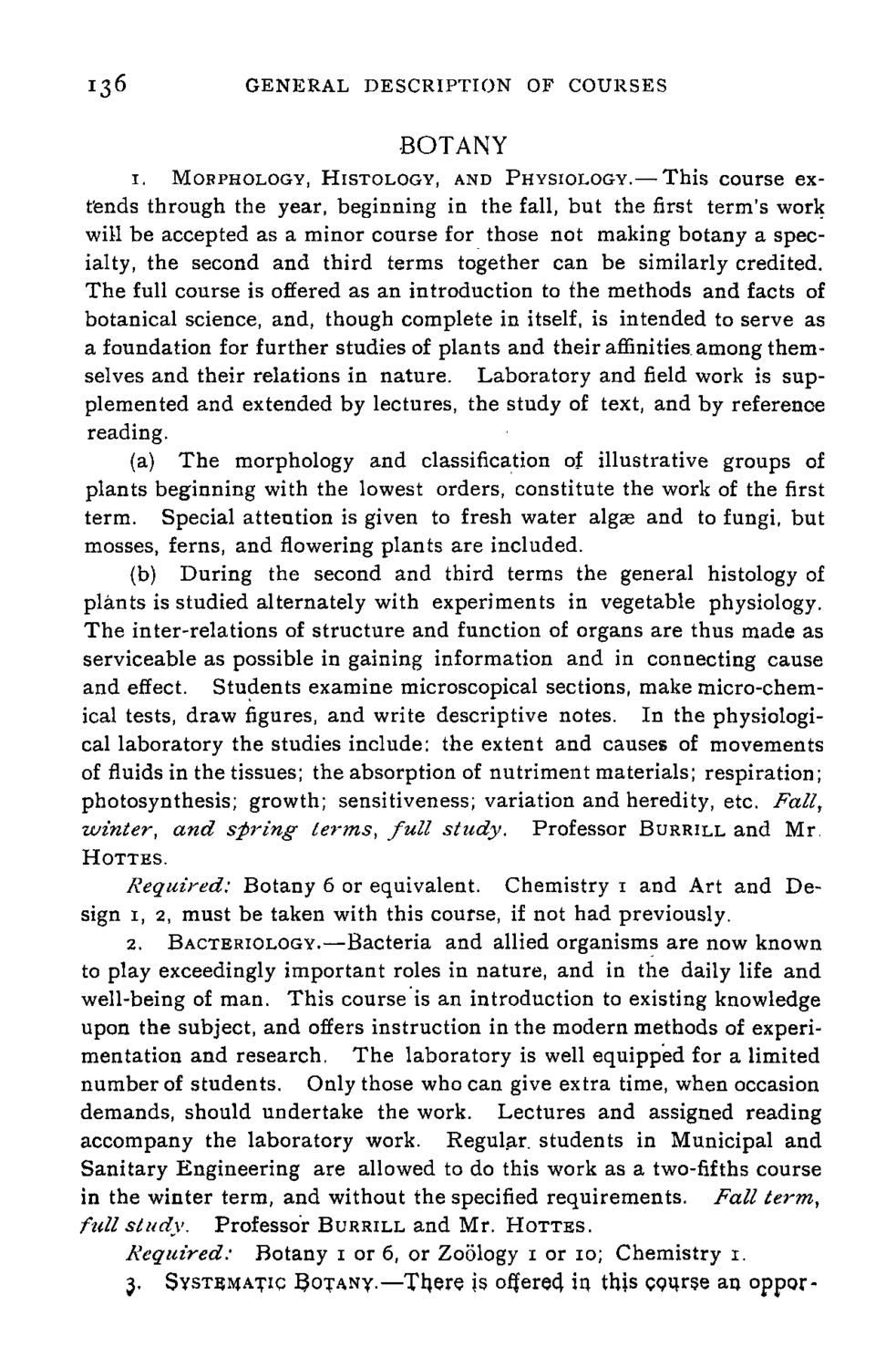| |
| |
Caption: Course Catalog - 1896-1897
This is a reduced-resolution page image for fast online browsing.

EXTRACTED TEXT FROM PAGE:
136 GENERAL DESCRIPTION OF COURSES BOTANY 1. MORPHOLOGY, HISTOLOGY, AND PHYSIOLOGY.— This course ex- tends through the year, beginning in the fall, but the first term's work will be accepted as a minor course for those not making botany a specialty, the second and third terms together can be similarly credited. The full course is offered as an introduction to the methods and facts of botanical science, and, though complete in itself, is intended to serve as a foundation for further studies of plants and their affinities, among themselves and their relations in nature. Laboratory and field work is supplemented and extended by lectures, the study of text, and by reference reading. (a) The morphology and classification of illustrative groups of plants beginning with the lowest orders, constitute the work of the first term. Special attention is given to fresh water algje and to fungi, but mosses, ferns, andfloweringplants are included. (b) During the second and third terms the general histology of plants is studied alternately with experiments in vegetable physiology. The inter-relations of structure and function of organs are thus made as serviceable as possible in gaining information and in connecting cause and effect. Students examine microscopical sections, make micro-chemical tests, draw figures, and write descriptive notes. In the physiological laboratory the studies include: the extent and causes of movements of fluids in the tissues; the absorption of nutriment materials; respiration; photosynthesis; growth; sensitiveness; variation and heredity, etc. Fall, winter, and sfring terms, full study. Professor BURRILL and Mr HOTTES. Required: Botany 6 or equivalent. Chemistry 1 and Art and Design 1, 2, must be taken with this course, if not had previously. 2. BACTERIOLOGY.—Bacteria and allied organisms are now known to play exceedingly important roles in nature, and in the daily life and well-being of man. This course is an introduction to existing knowledge upon the subject, and offers instruction in the modern methods of experimentation and research. The laboratory is well equipped for a limited number of students. Only those who can give extra time, when occasion demands, should undertake the work. Lectures and assigned reading accompany the laboratory work. Regular, students in Municipal and Sanitary Engineering are allowed to do this work as a two-fifths course in the winter term, and without the specified requirements. Fall term, full study. Professor BURRILL and Mr. HOTTES. Required: Botany 1 or 6, or Zoology 1 or 10; Chemistry 1. 3. SYSTEMATIC BOTANY.—Th,ere js offered, in this cgurse an oppor-
| |